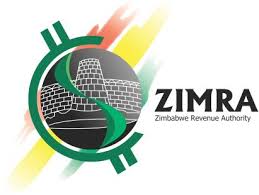Natalie Nyathi
Business Reporter
Zim GBC NEWS Business Column highlighted that, as of last week the publication will serialise Statutory Tax Head obligations that are supposed to be paid through the Zimbabwe Revenue Authority (ZIMRA), the tax collector.
Last week we looked at Pay As You Earn (PAYE), this week we explore the Value Added Tax the most hated VAT.
The Oxford Dictionary describes Value Added Tax (VAT) as a tax on the amount by which the value of an article has been increased at each stage of its production and distribution, whereas Wikipedia say VAT is a value added tax, known in some countries as a goods and services tax, it is a type of tax that is assessed incrementally. It is levied on the price of a product or service at each stage of production, distribution, or sale to the end consumer.
For example, if am going to buy a good at $300 and l want my $300 as well with my profit. If am VAT registered, l would then add 14,5% and if the next person who has just bought that good is a retailer then they would also put 14,5% until the good reaches the end user who is going to use it rather than sell it. That is what incremental tax entails.
The Zimbabwe Revenue Authority (Zimbabwe) website states that
Value Added Tax (VAT) is an indirect tax in consumption, charged on the supply if taxable goods and services. It is levied on transactions rather than directly in income or profit, and is also levied on the importation of goods and services.
This tax was introduced in 2004 replacing the former sales tax regime.
The VAT tax-head is enabled by the Value Added Tax Act Chapter.
VAT has got three rates namely, Zero-rate(0%), standard rate of 14.5%, no value added tax is charged on exempt supplies. It is normally seen when one buys from the shops.
There are some companies which have been asked by the government, registered by ZIMRA to collect VAT.
When one buy from shops such as Pick n Pay, Choppies, OK, Edgars, Jet, Power Sales, TV Sales and Home just to mention but a few, VAT is charged.
For instance, if one purchases a stove or television the receipt will have the value or price of the item and also 14% VAT.
The employer in advance collect the vat from the employees pay. They also collect VAT from you the buyer and send it to ZIMRA.
Rates are charged by local authorities.
Anyone who is required to be registered for VAT is required to charge value added tax. Meaning anyone carrying on trade as defined in the legislation.
In Zimbabwe VAT is paid on the 25th of every month.


